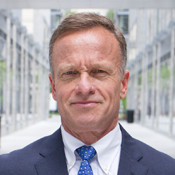The U.S. Olympic and Paralympic Training Center is a large complex that features an array of services. It’s aimed at giving athletes that extra edge as they get ready for each Summer or Winter Olympics.
Sleek, sophisticated, state-of-the -art, pick your adjective.
The Olympic Training Center has everything an athlete could possibly want or need. We first visited back in 2015. Cyclist Sarah Hammer, then a two-time Olympic silver medalist – was preparing for the Summer Games in Rio de Janeiro.
“You know when I was a kid, you just rode your bike. You didn’t have all these gadgets and stuff to mark it by. And then stepping it up was getting a speedometer to see how fast you were going,” Hammer said.
We spoke to her in a room that can simulate different altitudes and temperatures. What was cutting edge then in terms of training methods is even more so today.
“We have what we call an elite athlete profile and so each of the team USA athletes will come through and get kind of a whole workup, and that’s the physical side, the mental side,” said Jessica Bartley, director of mental health at the donor-funded training center.
At the training center, a huge pool and other sports facilities sit side by side with areas dedicated to strength and conditioning, and things like nutrition.
“So this is the cafeteria, we eat here pretty much five times a day, first breakfast, second breakfast, lunch, first dinner, second dinner,” said Kyle Millis, a college athlete.
These days, an athlete’s mental well-being is key to sports performance as well.
“We’re always pairing with different companies and trying out new technology and new equipment,” Bartley said. “We do individual therapy with athletes, consultation, whether it’s something brief or ongoing.”
Some athletes live here for periods of time. The center hosts lots of sports-specific training camps. Attention is also paid to those who fail to qualify for the Olympics, like those who trained extra for the Tokyo Games, which were delayed by a year.
“The athletes were devastated who didn’t make it and we actually had support groups that were really successful cause the athletes had this common experience of like, I gave this more of my time and my life,” Bartley said.
Not every athlete is fortunate enough to train here.
“I had to go on my own path to research what was going to be the best path forward for my physical training,” said alpine snowboarder Robby Burns. “For sure would have been wonderful to spend more time there, I guess I just feel like I didn’t have that time.”
Hammer won two more cycling silver medals in Rio and retired in 2017.
For Winter sports athletes, the work here is done, at least for this Olympic cycle. But the 2024 Summer Olympics are not far off and preparations for that competition have definitely begun. Even in the dead of January, boxing and wrestling training camps are underway here right now.
 CGTN America
CGTN America
